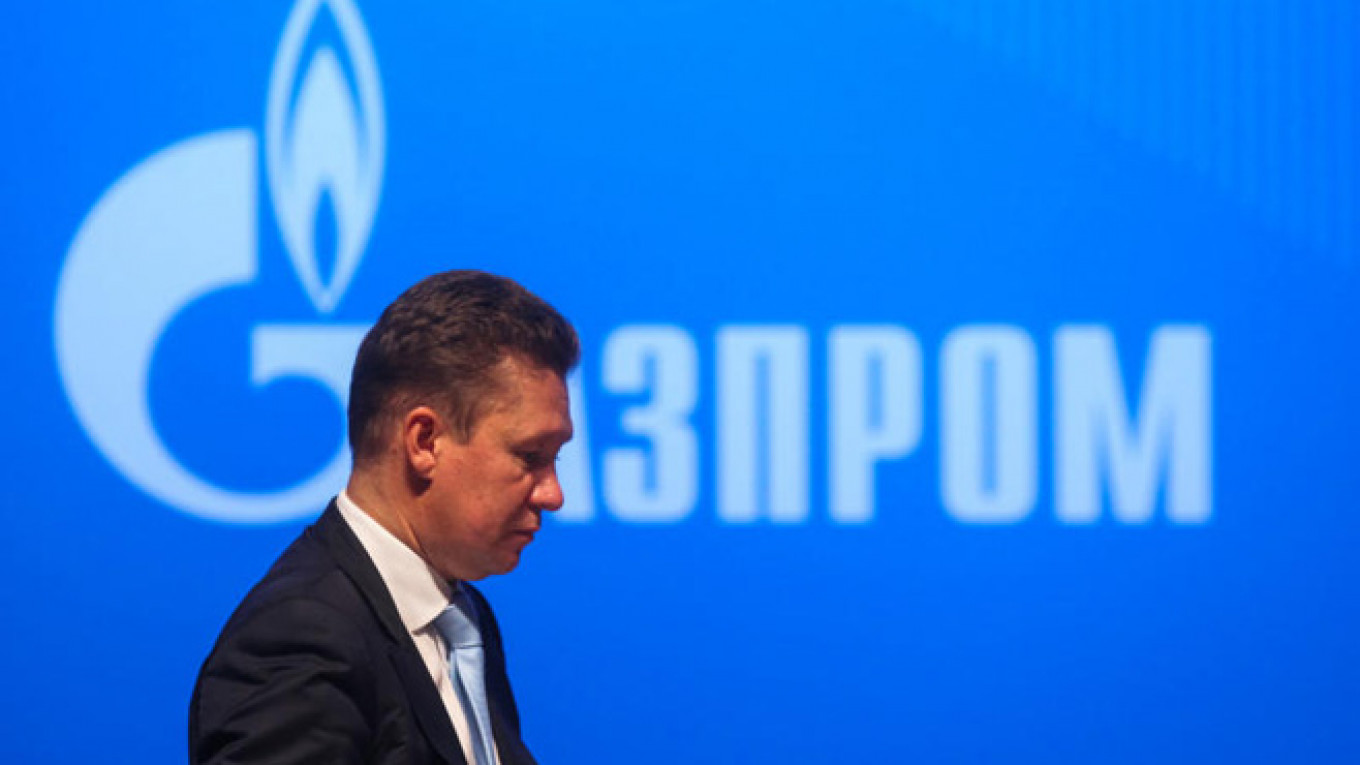Gazprom would lose nearly $3 billion in 2016 if the EU accepts a Ukrainian proposal to begin large-scale reverse gas flows through Slovakia to Ukraine, a UralSib report said Thursday.
In late April, Ukraine and Slovakia signed a reverse flow agreement that would make use of an old, unused pipeline to begin exporting 2 billion cubic meters, or bcm, to Kiev in October. Exports to Ukraine along this pipeline would rise to 8 bcm by early 2015.
According to a Kommersant report, Ukrainian energy officials recently forwarded a plan before the EU Commission that would allow Ukraine to increase reverse flows via Slovakia to 30 bcm.
Uralsib estimates that Gazprom's 2016 EBITDA — or earnings before interest, taxes, depreciation and amortization — would fall by $3 billion, or 6 percent, in 2016 if Ukraine and the EU agreed to the tactic. Gazprom would end up selling higher volumes of gas to the EU, where prices range from $360 to $380 per thousand cubic meters and gas is subject to a 30 percent export duty, rather than Ukraine's price of $385, where there is no export duty and transportation costs are lower.
Ukraine would be able to take advantage of low EU gas demand during the summer to fill its 30 bcm underground storage facilities, thereby replacing the 28 bcm it imports from Gazprom each year, the report found.
EU Energy Commission GЯnther Oettinger has said that such a large-scale reversal would be in direct violation of an agreement between Slovakia's Eustream and Gazprom Export. Ukraine, however, insists that the reverse flow is ensured by the EU's Third Energy Package — which, among other things, stipulates equal access to pipelines for gas suppliers.
On Tuesday, Gazprom finalized a deal to build the Austrian branch of the massive South Stream gas pipeline, which, if completed, will allow Russian gas deliveries to Europe to bypass Ukraine altogether.
See also:
A Message from The Moscow Times:
Dear readers,
We are facing unprecedented challenges. Russia's Prosecutor General's Office has designated The Moscow Times as an "undesirable" organization, criminalizing our work and putting our staff at risk of prosecution. This follows our earlier unjust labeling as a "foreign agent."
These actions are direct attempts to silence independent journalism in Russia. The authorities claim our work "discredits the decisions of the Russian leadership." We see things differently: we strive to provide accurate, unbiased reporting on Russia.
We, the journalists of The Moscow Times, refuse to be silenced. But to continue our work, we need your help.
Your support, no matter how small, makes a world of difference. If you can, please support us monthly starting from just $2. It's quick to set up, and every contribution makes a significant impact.
By supporting The Moscow Times, you're defending open, independent journalism in the face of repression. Thank you for standing with us.
Remind me later.






